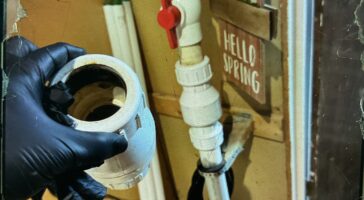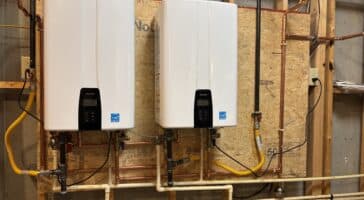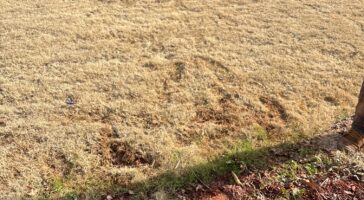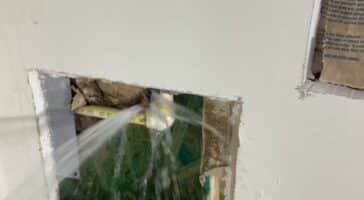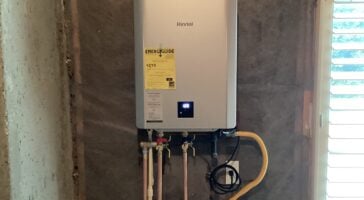Why Is My Water Bill So High? Common Causes & What to Do Next
Surprisingly High Water Bill? You’re Not Alone
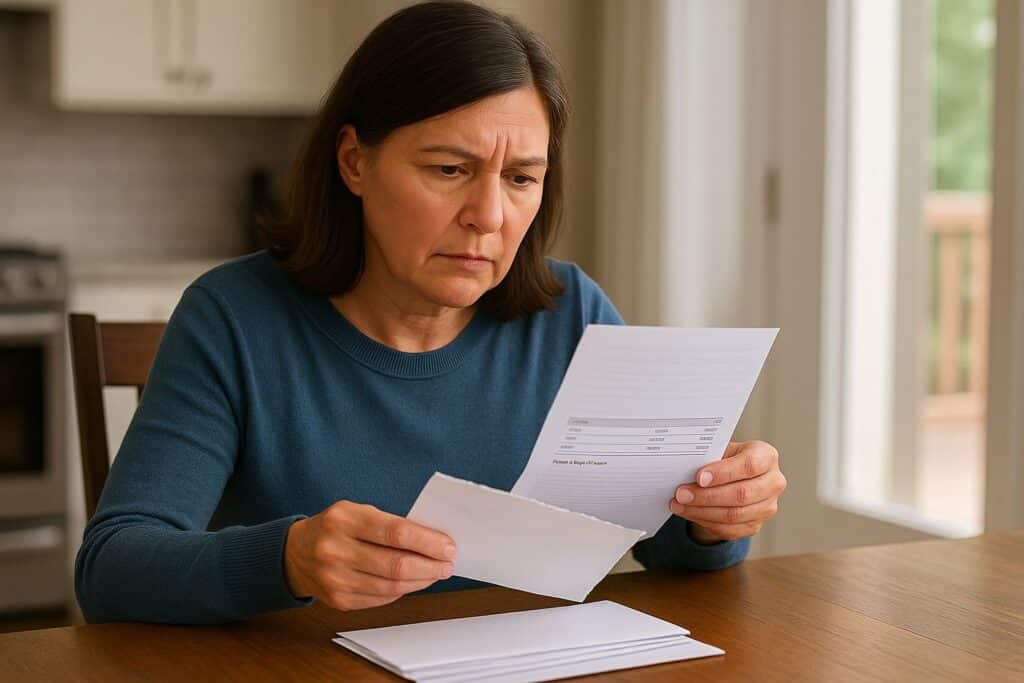
If you’ve opened your water bill lately and done a double-take, you’re not the only one. A high water bill can be confusing and frustrating—especially if you haven’t changed your water usage habits. If you’re wondering, “Why is my water bill so high?” there’s a good chance your home may have a hidden leak.
This article walks you through the most common causes of unexpected water loss and how to check for them, so you can avoid unnecessary expenses and water damage.
“Why Is My Water Bill So High?” 6 Possible Answers
1. Have You Actually Been Using More Water?
Before looking for leaks, ask yourself if anything might have increased your water use recently. A few examples include filling a pool or hot tub, hosting out-of-town guests, watering a new lawn or garden, and running extra laundry or baths—especially when kids are home from college. Even a new appliance, like a high-efficiency washing machine or dishwasher, can quietly increase usage.
Even small changes in daily habits can lead to more water use than expected. But if none of these apply, it’s time to investigate hidden leaks.

2. A Running Toilet – The Most Common Cause
A running toilet can waste hundreds of gallons per day without making much noise. Even if it only runs intermittently, it can cause a huge spike in your water bill.
An easy way to test: place a few drops of food coloring in the toilet tank. If color appears in the bowl without flushing, you have a leak.
This issue is often caused by a worn-out flapper valve, a loose fill tube, or a misaligned float. Fortunately, these parts are inexpensive and relatively easy to replace.
Read: How to fix a running toilet »
3. Water Line Leak – The Underground Problem
Leaks in your home’s main water supply line are often invisible. These pipes run underground from your water meter to your home, and a break can cause thousands of gallons of water loss without any interior symptoms.
Signs of a water line leak include water pooling in your yard or driveway and sudden drops in water pressure. You might also notice areas of especially green grass that seem out of place—this can indicate water is seeping underground in a concentrated area. Even if everything seems normal inside your home, an unexplained high water bill could mean there’s a problem in the line outside.
Here’s how to test for a leak:
Make sure no water is running inside your home, then locate your water meter (usually near the curb or street). If the meter dial continues to move while no water is being used, there’s likely a leak somewhere. To narrow it down, turn off the main shutoff valve to your house. If the meter still moves, the leak is probably in your main line between the meter and the shutoff.
Learn more: How to check your water supply line »
4. Slab Leak – Damage You Can’t See
A slab leak occurs when pipes under your home’s foundation begin to leak. These can be difficult to detect, but they waste a tremendous amount of water and can cause serious structural damage if left untreated.
Common signs include warm or damp spots on the floor, mold or mildew growth that doesn’t seem to have a clear source, or hardwood floors that are buckling or warping. Some homeowners also report hearing water running when all fixtures are off or noticing a drop in water pressure.
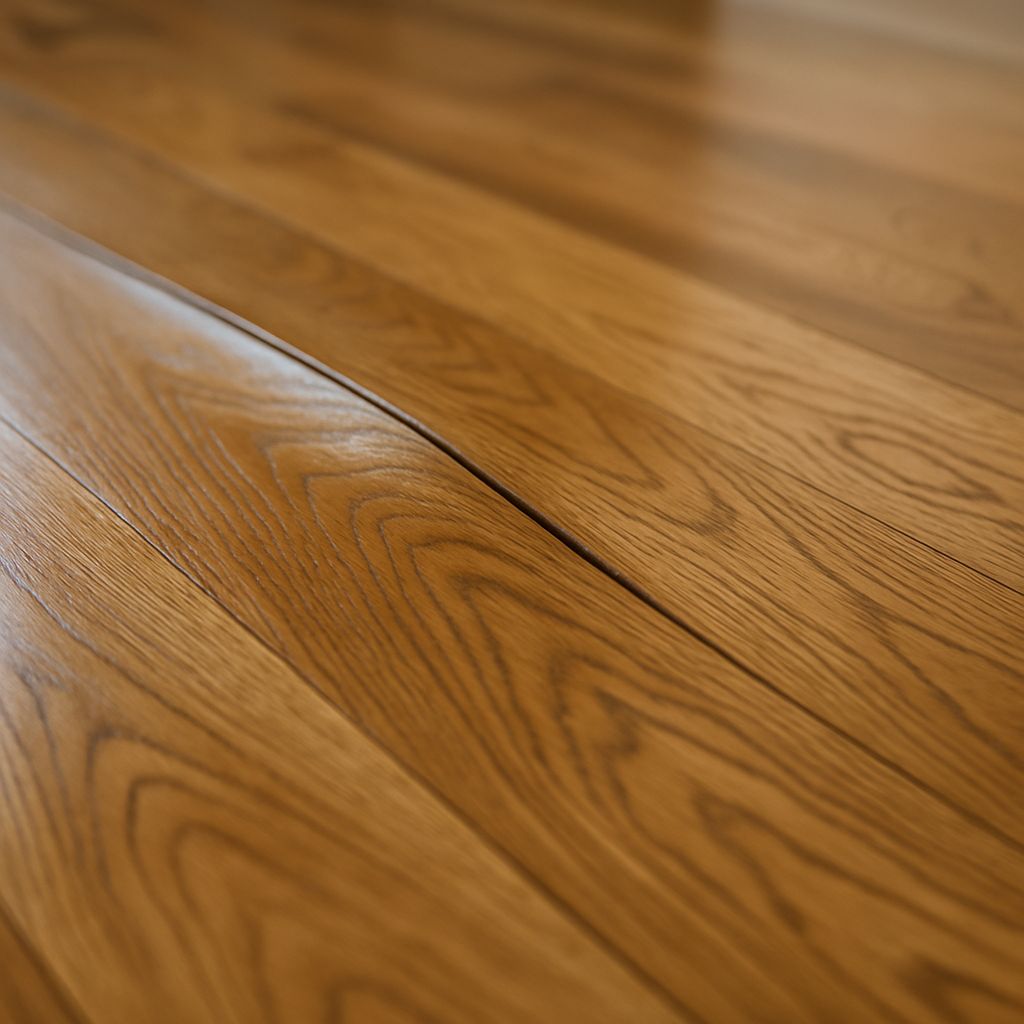
Slab leaks are more common in older homes, but lately we’ve been finding them in newer builds as well. High water pressure can also increase the risk of pipe damage beneath your slab. If you notice a combination of these symptoms, it’s a good idea to call in a plumber trained in slab leak detection.
5. Dripping Faucets – Small Leak, Big Waste
That tiny drip you’ve been ignoring? It can add up to hundreds of gallons per month.
Even a slow leak of one drip per second can waste over 3,000 gallons per year. Multiply that by two or three dripping faucets and you’re looking at a serious amount of wasted water.
If you have more than one dripping faucet, the issue may not just be worn washers—it could indicate high water pressure. High pressure can quietly damage plumbing fixtures and shorten the life of appliances, in addition to driving up your water usage. A licensed plumber can test your home’s pressure and recommend solutions like a pressure-reducing valve if needed.
6. Don’t Forget the Outdoors – Hose Bibs & Irrigation
Outdoor leaks can go unnoticed for months, especially if the source is hidden behind landscaping or if your irrigation system runs early in the morning.
Check hose bibs for drips or water pooling around the base. Cracks in outdoor plumbing or irrigation lines can cause significant water waste without any obvious sign—especially in clay soil, where water is slow to rise to the surface. Review your irrigation settings as well; faulty timers or overwatering schedules may use far more water than necessary. And in colder climates, make sure outdoor spigots and lines were properly winterized to avoid freeze damage that shows up with the thaw.
How Is Your Water Bill Calculated?
Before assuming the worst, it helps to understand how water usage is billed.
Many local utilities use tiered pricing, where you pay more per gallon as your usage increases. Sewer and stormwater fees may be calculated based on your water usage or added as a flat rate. There may also be a minimum monthly service charge you pay even with low usage.
Compare your current usage to your average monthly usage or look at the same month in the previous year. If usage is consistent but your charges are higher, you may be in a higher pricing tier or have a leak increasing your usage just enough to cost you more.
Explore: Understanding the average water bill »
Can You Get a Credit for a High Water Bill?
Once you’ve figured out the answer to, “why is my water bill so high?” it’s time to determine whether you qualify for any bill adjustments or credits. If your high water bill was caused by a confirmed leak, you may be eligible for a bill adjustment or credit—but only if the leak is properly repaired.
Many cities, counties, and water authorities (including several in the Metro Atlanta area) offer leak adjustment programs to help residents recover some of the cost of water lost due to unexpected leaks.
To qualify, you’ll typically need:
- Proof that the leak was professionally repaired
- A copy of the plumber’s invoice clearly showing the nature of the repair
- A written request or application submitted to the utility provider within a certain window of time
The credit amount varies by jurisdiction and is often based on your average usage. While it may not cover the full excess, it can significantly reduce the impact of a leak-related spike.
If you had the leak repaired by a licensed plumber, ask for documentation that includes both the scope of the work and confirmation of completion. This is especially important for repairs like slab leaks, water line replacements, or rebuilt toilet components.
At Aaron Plumbing, we provide detailed invoices and are happy to help customers navigate the adjustment process with their local water utility.
Think You Have a Leak? Here’s What to Do
If your bill has jumped but you’re not seeing clear signs of a leak, don’t worry—there are several ways to check for water loss that might not be obvious at first.
Start with your water meter:
- Make sure no one in the house is using water (turn off dishwashers, washing machines, faucets, etc.).
- Locate your water meter (typically near the street or sidewalk).
- Watch the meter for a few minutes. If the numbers continue to move, water is flowing somewhere.
- Shut off the main water valve to your house. If the meter still moves, the leak is likely between the meter and your house—possibly in the underground water line.
Leaks won’t fix themselves—and the longer they’re left, the more costly they become. Fast diagnosis can mean the difference between a simple repair and throwing away money on wasted water.
Aaron Plumbing Can Help
If you’ve received a high water bill and can’t find the cause, our experienced plumbers can:
We’re TrustDale Certified, offer same-day appointments, and never charge weekday dispatch fees. Our team is trained to explain the problem and solution clearly so you feel confident every step of the way.
Call today for honest answers and expert help—before your next bill arrives.


